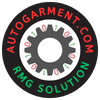Tubeless Lab Dispenser
Tubeless lab dispenser is a special device for repeatedly delivering small fixed amount of liquid e.g. naturally between 1 ml and 50 ml. This equipment is used in textile dyeing and printing laboratory. The main advantage of tubeless lab dispenser, it direct dispensing from the dye stuffs. It makes accurate dispensing, It makes hassle free dispensing, It has no choking problem, There is no cross contamination, there is no scaling problem in tubeless dispenser…
Benefits of Laboratory Dispenser:
The benifit of laboratory dispenser is given here –
- Tubeless Laboratory Dispenser is faster dispensing (22 recipes in under 15 minutes), gives two times or more output than any other robotic system with similar numbers of solution
- All gravimetric design for dye solutions, chemical and water dispensing system
- Unique and accurate direct dispensing design
- User friendly and stable software for smooth operation in the machine
- Portable with Mcs CCM, datacolor color matching and all other reputed color matching software.
- Laboratory dispenser is designed for continuous operation without maintenance downtime
Features of Laboratory Liquid Dispenser:
The features of a laboratory liquid dispenser is given here –
- Modular design of laboratory liquid dispenser gives flexibility of operation
- Laboratory liquid dispenser have high precision servo motor runs 3 solution tables with 3 scales
- Conveyor dye pot carrier (22 dyepots)
- Intelligent agitation module
- Indivisual PLC for each turntable
- It is compatible with different operating system like , Windows 7, Windows Vista, Windows XP etc.
Specifications of Laboratory Dispenser:
| Specifications Name | Specifications Value |
| Product Category | LAB |
| Machine Category | Dispenser |
| Product Name | Tubeless laboratory dispenser |
| Product Model | MDS115IU |
| Product Class | New |
| Origin | Made in China |
| Brand/ Manufacturer | Ming Scape International Company Limited. |
| Agent in Bangladesh | No/Yes |
| Power | AC 220V – single phase |
| Temperature | Normal |
| Certification | SGS/Others |
| Production Capacity | NA |
| Dyestuff | 108 |
| Chemical | 6 |
| Water tube | 2 |
| AUX. Auto refill | V |
| Max. one batch | 22 |
| Dimension | W3400*D1230*H1250 |
| Software | Laboratory dispenser supports Windows 98 / Windows XP/ Windows VISTA |
Dyeing Process
Fabrics are dyed based on their quality and blending and to the buyers standard sample appearance. The dyeing processes used at BKL are:
Reactive dyeing : Cotton part dyeing at temperature range of 600C – 920C in alkali medium (in accordance to existing dyes)
Disperse dyeing: Polyester part dyeing at 1000C – 1320C in acid medium. There are different processes for blended fabrics such as PC or CVC
Two–bath process: This is a process where at first the polyester part is dyed, matched and reduction cleaning (if needed) is done, then proceed to cotton part dyeing using different bath. One – bath process/ New select process
Selection of Dyes
Dye selection for every shade Is important because buyer have different quality parameter and production have target production.
Criteria for dyes which must be check are as follows :
Good to very good colourfastness to :
- washing
- water
- light
- perspiration
- rubbing or crocking
- dry cleaning
- Reproducibility in dyeing
- shade
- levelness
- dyes and chemical compatibility
- least metamerism
- Sensitivities in finishing
- shade changes during drying
- thermo migration
- application of chemicals
- availability in the market import/local for continuous flow of production
Conclusion
After drying allow the samples to fully condition before assessing the shade. If lab. dips do not match then repeat the whole procedure. If lab dips trial match with the given standard from the buyer then recipe will be written in the Lab Dye Record Formwith samples of the closed match. Four copies of Labdips For Approval Form is made; one for laboratory, one for marketing department, and remaining two copies for customer. End of Lab Dispenser. Benefits



Trackbacks/Pingbacks